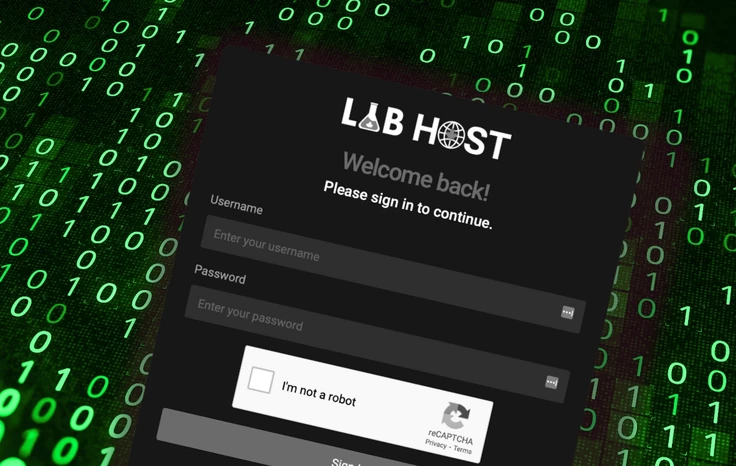Dozens Arrested Following UK Police LabHost Takedown
Stéphane Kirchacker: Increasing Productivity During the Modern Surge of Remote Working

This article was contributed by Stéphane Kirchacker, Vice President, Sales EMEA at Sinequa.
On the 22nd of September, the UK government announced that workers should avoid going into the office to reduce coronavirus infection rates and prevent a second lockdown. The decision has seen the number of people working from home increase from 50% to 60% since the height of lockdown. Working from home has been a gift for those used to hour-long commutes on cramped public transport. Home comforts and later morning starts have been major benefits, but this mass move to remote working has reformed more than people’s daily routines. Whilst many welcomed a change in pace, businesses have had to re-think their approach to flexible working and change the way that they operate, which has disrupted the flow of information.
Despite the sudden shift to remote working, one thing that has remained constant throughout this pandemic – or in many cases, has become more significant – is our reliance on data and information. It’s at the core of every modern business, regardless of size or industry. It offers a deeper insight into business practices and can be used to support strategic decisions that will contribute towards future success. Forced to work from home, employees are struggling to access the data required to work. With scattered and siloed conversations and documents, slower systems and a lack of support from colleagues, finding information has become increasingly challenging. How, if employees do not have accessible information, can they be expected to perform as normally expected?
Recent research discovered that the search for data is a major barrier to business outcomes, with 61 per cent of UK employees battling to overcome this productivity hurdle. While some individuals have become more productive at home, 59 per cent believe that they would be even more productive if they had better access to information. To put this into perspective, employees spend approximately 44 minutes a day searching for information on average. This means that across the UK, over 8 million working hours are wasted each day carrying out what should be a simple task. Larger businesses with greater numbers of employees will be hit the hardest by this constraint, facing more time wasted than smaller organisations. More noteworthy however, is that more than half of those surveyed said that there are days where they never find the information at all, which acutely communicates the severity of the issue. With businesses already struggling to manage such a drastic shift in operations, this lapse in productivity does not favour a strong economic recovery.
In order to sustain innovation and growth throughout the pandemic, businesses must strive to preserve their competitive advantage - an impossible task without better access to data. Fortunately, businesses in this predicament can overcome this barrier by implementing three crucial measures that will empower staff and provide them with the information they need to work.
Improve the digital workplace environment
Businesses must ensure that effective collaboration tools are in place so that employees can easily communicate and keep in touch with colleagues. Just because we are working remotely does not mean we must be isolated. Digital tools like Slack, Zoom and Microsoft Teams enable live messaging and video conferencing that make remote working a much smoother process for all. It is important to recognise however, that these tools alone are not enough, especially when working with experts over-seas.
Implement Information Management Solutions
Information management solutions organise and aggregate data, bringing it all into a central repository and allowing it to be at the disposal of anyone that needs it. Sinequa’s research found that 55 per cent of organisations plan to implement digital workplaces in order to increase employee performance. Removing data silos and improving access to information will not only enable current employees to become more productive, but it will facilitate business growth and enable new employees to quickly integrate themselves within the business as the onboarding process can be accelerated. This will be invaluable to businesses operating in a time where remote working has become the new normal, by eliminating these contemporary barriers to productivity.
Drive change from the top with leadership buy-in
As with any widespread organisational change, a new data-focused strategy requires strong management and leadership in order to be implemented and adopted successfully among the workforce. Executives must ensure that employees not only have the right tools and systems available in order to work, but the right skills and capabilities in order to use them effectively. This applies especially to new staff who may require additional training so that they are comfortable with the digital business processes at play.
Taking into account current circumstances, remote working is likely going to remain the norm for many workers and will continue to be a key feature of our occupational lives for many years to come. Executives looking to champion information management programmes should implement centralised information systems in order to boost productivity and put the organisation in the best position for recovery post-pandemic. Failing to implement coherent data management practices in the near future will ensure that siloes of information continue to impede productivity, which may be manageable for businesses in the short term, but if not managed swiftly, will present itself as a true threat to successful business outcomes in future
























